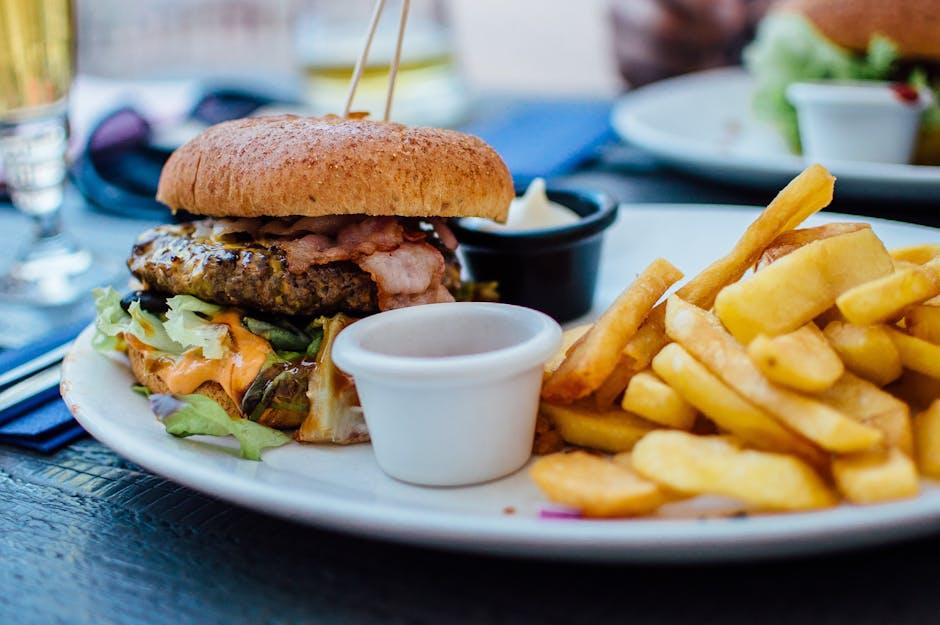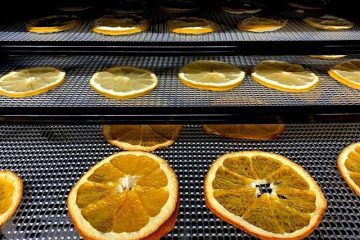In a world where fast food and instant meals dominate our diets, it’s easy to overlook the importance of fiber-rich foods. Imagine a culinary journey where every bite not only tantalizes your taste buds but also nourishes your body from within. Join us as we delve into the realm of foods high in fiber, unlocking a treasure trove of delicious and nutritious options that promise to revolutionize your approach to eating. Let’s embark on a flavorful adventure where wellness meets gastronomy, one fiber-filled dish at a time.
Table of Contents
- – The Ultimate Guide to Food High in Fiber
- – Fiber-Rich Foods for a Healthy Digestive System
- – Top Picks for Delicious and Nutritious High-Fiber Foods
- – How to Incorporate More Fiber into Your Daily Diet
- Q&A
- Closing Remarks


– The Ultimate Guide to Food High in Fiber
When it comes to enhancing your diet with fiber-rich foods, there are plenty of delicious options to choose from that not only provide essential nutrients but also contribute to your overall well-being. Incorporating these fiber-packed ingredients into your meals can help support digestion, lower cholesterol levels, and even aid in weight management.
Some fantastic choices to consider include avocados, which are not only creamy and flavorful but also high in fiber content. Berries, such as raspberries and blackberries, are also excellent sources of fiber and antioxidants, making them a perfect addition to your morning smoothie or yogurt bowl. Including legumes like lentils, chickpeas, and black beans in your meals can also boost your fiber intake significantly while providing plant-based protein for a well-rounded diet. Experimenting with these fiber-rich foods can add variety and nutritional value to your daily menu.
| Food | Fiber Content |
|---|---|
| Avocado | 10g per cup |
| Berries | 8g per cup |
| Legumes | 15-16g per cup |
Diversifying your food choices with a range of fiber-rich options not only provides health benefits but also brings excitement to your meals. From crunchy vegetables like broccoli and carrots to whole grains such as quinoa and oats, there are endless possibilities to explore. By incorporating these fiber-filled foods into your daily diet, you can promote good gut health, feel fuller longer, and support your overall wellness journey.![]()
![]()
– Fiber-Rich Foods for a Healthy Digestive System
Incorporating fiber-rich foods into your diet can do wonders for your digestive health. These foods not only help maintain regular bowel movements but also support a healthy gut microbiome. Embrace a variety of fruits like apples, berries, and pears, as well as vegetables such as broccoli, carrots, and sweet potatoes to increase your daily fiber intake.
Furthermore, whole grains like oats, quinoa, and brown rice are excellent sources of fiber that can promote satiety and aid in digestion. Legumes like lentils, chickpeas, and black beans are versatile ingredients that can be easily added to soups, salads, or main dishes to boost your fiber consumption. Including these fiber-packed options in your meals can contribute to better overall digestive well-being and enhance your overall health.

– Top Picks for Delicious and Nutritious High-Fiber Foods
When it comes to incorporating high-fiber foods into your diet, there are plenty of delicious and nutritious options to choose from. Adding fiber-rich foods to your meals not only promotes digestive health but also provides essential nutrients for your overall well-being. Here are some top picks to consider when aiming for a high-fiber diet:
| Fiber-Rich Foods | Benefits |
|---|---|
| 1. Chia Seeds | Packed with fiber and omega-3 fatty acids |
| 2. Avocados | High in fiber, healthy fats, and vitamins |
| 3. Lentils | Excellent source of fiber and plant-based protein |
Incorporating these fiber-rich foods into your meals can help you meet your daily fiber intake goals while enjoying a variety of flavors and textures. Whether you sprinkle chia seeds on your yogurt, add avocado to your salads, or cook up a hearty lentil soup, these high-fiber foods are both delicious and beneficial for your health. Make sure to explore different recipes and meal combinations to keep your fiber intake exciting and fulfilling.

– How to Incorporate More Fiber into Your Daily Diet
Eating a variety of foods rich in fiber can have numerous health benefits. To boost your fiber intake, consider introducing delicious options into your daily meals. Start your day with a hearty bowl of oatmeal topped with fresh berries and nuts for a fiber-packed breakfast that will keep you feeling full and energized.
<p>Include more legumes like chickpeas, lentils, and black beans in your salads or stews for a protein and fiber boost. Snack on crunchy almonds or walnuts in between meals to get an extra dose of fiber and healthy fats. Incorporating **whole grains** such as quinoa, brown rice, and whole wheat pasta into your diet can also provide a great source of fiber.</p>Q&A
Q: Why is fiber important in our diet?
A: Fiber plays a crucial role in our digestive system by promoting regular bowel movements and aiding in the prevention of constipation.
Q: What are some benefits of consuming foods high in fiber?
A: Foods high in fiber can help lower cholesterol levels, regulate blood sugar levels, and promote a feeling of fullness, which can aid weight management.
Q: Which foods are considered high in fiber?
A: Fruits like apples, pears, and berries, vegetables such as broccoli, carrots, and sweet potatoes, whole grains like oats, quinoa, and brown rice, as well as legumes including lentils, chickpeas, and black beans are all excellent sources of fiber.
Q: How can I incorporate more fiber-rich foods into my diet?
A: You can start by adding fruits, vegetables, whole grains, and legumes to your meals and snacks. Try including fiber-rich options in your smoothies, salads, stir-fries, and soups for a delicious and nutritious boost.
Q: Are there any potential drawbacks to consuming too much fiber?
A: While fiber is generally beneficial, consuming excessive amounts of fiber without adequate fluid intake can lead to bloating, gas, and digestive discomfort. It’s important to gradually increase your fiber intake and stay hydrated to prevent any related issues.
Closing Remarks
Incorporating fiber-rich foods into your diet can have a multitude of benefits for your overall health and well-being. From promoting digestive health to aiding in weight management, these nutritional powerhouses deserve a spot on your plate. Remember, when it comes to fiber, variety is key! So why not add some fiber-filled delights to your next meal and let your taste buds and your body thank you for it. Here’s to embracing a delicious and nutritious journey towards a healthier you.




0 Comments